The Top DeFi Wallets and Crypto Trading Apps
The rise of Decentralized Finance, or DeFi, has transformed the financial landscape with the help of trading apps by making traditional financial services—such as lending, borrowing, trading, and earning interest—accessible to anyone with an internet connection. Without the need for banks, brokers, or other intermediaries, DeFi leverages blockchain technology to deliver these services through decentralized applications (dApps), cutting down on fees and enhancing user control over assets. This revolution opens doors for financial inclusion worldwide, enabling people to participate in a global economy free from geographical or bureaucratic constraints.
At the heart of this ecosystem are DeFi crypto wallets and trading apps, which have become indispensable tools for securely managing and trading digital assets. These wallets provide self-custody options, giving users full control over their funds while keeping assets safe from centralized failures and privacy invasions. Trading apps, on the other hand, have empowered users with advanced features and ease of access to a variety of tokens, liquidity pools, trading bots and decentralized exchanges (DEXs). This blog delves into the essential functions of DeFi wallets, their benefits, and highlights some of the top trading apps that are helping users make the most out of the DeFi experience.
Why YOUR DeFi Wallets Matters
Self-Custody and Control
DeFi wallets empower users by allowing full control over their assets without a third-party custodian. This self-custody approach aligns with the DeFi ethos of decentralization and provides users with unmatched control over their funds.
Security and Privacy
Traditional banks and exchanges often have access to sensitive user data. DeFi wallets, however, work on secure, encrypted blockchain networks where user data remains private, secure, and inaccessible to intermediaries. Many DeFi wallets also offer multi-layer security features such as two-factor authentication (2FA) and biometric verification.
Cross-Chain Compatibility
With many DeFi wallets, users can manage assets across multiple blockchains, such as Ethereum, Solana, and Binance Smart Chain. This feature allows flexibility in trading across different networks without needing multiple wallet apps.
Key Features of DeFi Wallets
- Non-Custodial Access – Control over funds with no third-party access.
- Speed and Automation – Being the fastest matters when with certain trade techniques and finding a trade platform to automate buys and sells can maximize gains and minimize loss.
- Multi-Chain Support – Manage and Bridge assets across various blockchains seamlessly.
- Enhanced Security – Private keys, biometric locks, and sometimes even hardware wallet support for maximum security.
- Token Swaps and Staking – Quickly swap assets or participate in staking/referral/airdrop programs to earn rewards.

The Top Trading Apps and Wallets Driving DeFi Growth
DeFi trading apps have introduced user-friendly interfaces and advanced trading features, making decentralized finance accessible to new and experienced traders alike. Here’s a look at some leading trading apps and what makes them stand out:
1. Trojan
Network: Solana
Trojan is a robust platform on Solana, offering advanced trading bots and wallet monitoring tools for high-speed, low-fee trading. It’s a go-to for traders seeking sophisticated features and rapid transaction processing within Solana’s growing DeFi ecosystem.
Wallet\Swap\Bridge\Copy\Snipe\DCA\Earn
2. MetaMask
Network: All Networks
MetaMask remains an essential tool in DeFi, providing access to Ethereum’s DEXs, staking platforms, and NFT marketplaces. Its browser extension enables one-click access to DeFi sites, making it perfect for web-based DeFi activities on Ethereum and Layer 2s.
Wallet\Swap\Bridge\Onboard\Automate
Network: Solana, Ethereum, Base, Polygon, Bitcoin
Phantom Wallet is one of the most popular DeFi wallets on Solana, Ethereum, Base and Bitcoin, known for its sleek design and easy integration with DEX and Trading Bots. It also supports NFT management and staking, making it ideal for Solana users seeking an all-in-one DeFi solution.
Wallet\Swap\Onboard\Staking
4. Solflare
Network: Solana
Solflare supports Solana offering a dedicated DeFi experience. It includes features like token swapping, staking, and compatibility with Solana-based DEXs, appealing to users looking to solely use Solana.
5. BullX
Network: Ethereum, Solana, Base, Binance, Arbitrum, and Blast
BullX is a DEX and trading bot hybrid, providing traders with a platform that supports multiple networks and advanced trading features. With its integrated trading bot, BullX appeals to users who want both trading flexibility and automation.
6. Maestro Bots
Network: Sol Eth Base Blast Bsc Arb Metis Ton Tron Sui and more
Maestro Bots offer automated trading solutions for DeFi users, simplifying processes like token swaps and LP sniping across multiple networks. Their automation capabilities make Maestro Bots ideal for users aiming to streamline complex trading strategies.
Wallet\Swap\Bridge\Automate\Copy\Snipe
Network: Solana
Jupiter Exchange is a top DEX aggregator on Solana, offering users the best rates by routing trades through multiple exchanges. Its integration with popular wallets like Phantom makes it highly convenient for Solana traders focused on optimizing their trades.
8. Shuriken
Network: Multi-Chain (Ethereum, Solana, Base, Binance Smart Chain, Blast, Arbitrum, Sui, Tron and more)
Shuriken is a versatile, multi-chain trading app that provides seamless trading across multiple networks. It’s known for its cross-chain capabilities and speed, making it a strong choice for traders looking to operate across different DeFi ecosystems efficiently.
Wallet\Swap\Bridge\Automate\Copy\Snipe
Network: Ethereum, Solana, Arbitrum, BSC and more
Sigma Trade Bots bring automated trading to DeFi users across various networks, offering features like limit orders, stop-loss, and take-profit orders. Sigma’s bots cater to users who value precision and automation in their trading strategies.
Wallet\Swap\Bridge\Automate\Copy\Snipe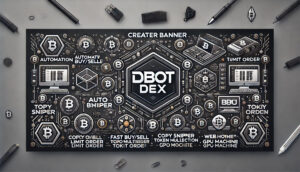
10. DBOT DEX
Network: Primarily Ethereum, Solana, and Binance Smart Chain
DBOT DEX is an advanced decentralized exchange with features like simulators, token multi-senders, and Telegram-based trade bots for automated trading. It’s an excellent choice for traders interested in extensive tools and advanced trading options.
Wallet\Swap\Bridge\Automate\Copy\Snipe
FIND A FULL LIST OF DECENTRALIZED TRADE PLATFORMS HERE
Choosing the Right DeFi Wallet and Trading App
Selecting the right wallet and trading app depends on your priorities, from network preferences to security features. For instance:
- For Lower Fees: Trojan & BullX
- For Multi-Chain Compatibility: Maestro and Shuriken
- For Speed/Automated Trading: Trojan and Shuriken
- For Stability and Liquidity Pools: Uniswap, Jupiter
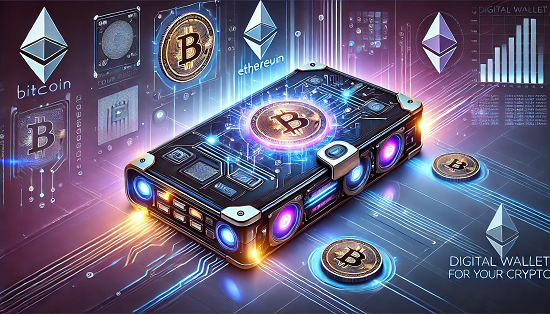
Future of DeFi Wallets and Trading Apps
The future of DeFi wallets and trading apps is set to be marked by advancements in interoperability, enhanced security features, and deeper integration with decentralized applications. As DeFi grows, we’re likely to see a new generation of wallets and trading platforms with seamless multi-chain capabilities, allowing users to hold, manage, and trade assets across numerous blockchains without needing to switch between applications. These improvements in cross-chain functionality will empower users to access a vast range of DeFi services in one place, enhancing both the convenience and scope of decentralized finance.
Another key area of development will be security. With the rising sophistication of blockchain technology, DeFi wallets are increasingly focusing on implementing multi-layered security measures. We can expect more wallets to introduce advanced encryption, multi-signature approvals, and fraud detection systems to protect user assets. Additionally, innovations such as decentralized identity (DID) and zero-knowledge proofs (ZKPs) will likely find their way into wallet designs, enabling users to authenticate securely without exposing sensitive information. These security enhancements will make DeFi safer, reducing risks for everyday users and encouraging greater adoption.
Furthermore, DeFi wallets and trading apps will likely evolve to support more complex functionalities, such as in-app staking, yield farming, and even NFT management. As DeFi expands, wallet providers are integrating features directly into their platforms, allowing users to access an entire financial ecosystem from within their wallets. This streamlining trend may extend to in-app governance capabilities, letting users vote on decentralized protocols directly from their wallets, which would foster active community involvement and decentralized decision-making.
Artificial intelligence (AI) and machine learning are also expected to play a significant role in the future of DeFi trading apps. By analyzing real-time market data, AI-driven bots could provide personalized trading strategies, risk assessments, and automated portfolio rebalancing. This approach could make trading apps smarter, more intuitive, and accessible to users with varying levels of experience. These intelligent tools will help simplify complex trading tasks and enhance user engagement, promoting an even broader adoption of DeFi technologies.
Finally, as regulatory frameworks around cryptocurrency continue to evolve, DeFi wallets and trading apps will adapt to offer greater transparency and compliance without compromising on decentralization. Emerging features may include built-in KYC options for users who choose to verify their identity for certain activities, while still maintaining anonymous DeFi interactions for those who prefer privacy. With these regulatory advancements, wallets and apps are likely to introduce tools that allow users to monitor their activity and ensure they meet relevant tax obligations, further legitimizing the space and providing peace of mind.
In short, the future of DeFi wallets and trading apps is poised for substantial innovation, making them more secure, accessible, and integrated than ever before. By embracing cross-chain capabilities, robust security, intelligent trading solutions, and compliance options, these platforms are set to play a critical role in the next wave of DeFi adoption, bringing a decentralized financial ecosystem to a global audience.
The Emergence of Trading Bots
Trading bots like Trojan and Maestro are becoming essential tools in DeFi trading, offering automated solutions that simplify complex strategies, enhance trading speed, and reduce the need for constant market monitoring. These bots operate within the decentralized finance ecosystem, empowering users with tools that streamline trades and make even advanced trading accessible to new users.
Trojan
Trojan is a sophisticated trading bot built primarily for the Solana blockchain, known for its high-speed and low-cost transactions. Trojan’s advanced features are a major draw for new users, as they help simplify and automate various trading strategies:
- LP Sniping: Trojan allows users to quickly enter new liquidity pools (LPs), giving traders an edge in fast-moving markets by securing early positions and maximizing potential profits.
- Limit Orders: Unlike many DeFi platforms that operate on a first-come-first-serve basis, Trojan provides users with limit order functionality, enabling them to set specific buy or sell prices and ensuring trades only execute when conditions are met.
- Copy Trading: New users are especially attracted to this feature as it allows them to mimic the trades of successful traders, effectively benefiting from expert strategies without needing extensive knowledge or experience.
- Bridge Functionality: Trojan’s bridge feature allows for seamless asset transfers across different networks, enhancing accessibility and expanding trading opportunities across ecosystems beyond Solana.
- Wallet Monitoring: With wallet monitoring tools, users can track the movements of specific wallets in real time, providing valuable insights into market trends and the trading behaviors of influential market players.
These features make Trojan especially appealing for those new to DeFi as wel as veterans, as they reduce entry barriers by automating processes, allowing users to engage in DeFi trading with increased confidence and reduced complexity.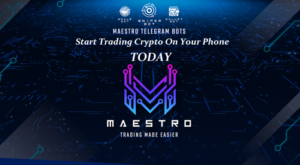
Maestro
Maestro, on the other hand, is a versatile trading bot available on multiple networks like Ethereum, Binance Smart Chain, and Solana. Its multi-chain support and diverse features are attracting new DeFi traders looking for flexibility and customization.
- Automated Trading: Maestro’s automated trading capabilities allow users to set predefined strategies and execute them without manual input. This feature includes popular strategies like dollar-cost averaging (DCA), which spreads purchases over time, reducing exposure to volatility—a great feature for new users unsure about market timing.
- Token Swapping and Sniping: Maestro’s token-swapping and sniping functionalities make it easy for users to access new tokens and liquidity pools quickly, optimizing trades without missing opportunities due to manual delays.
- Multi-Network Compatibility: Supporting multiple blockchains, Maestro enables users to access trading opportunities across different ecosystems from a single platform, appealing to users interested in a broad range of assets.
- Risk Management Tools: Features like stop-loss and take-profit options allow users to set parameters on trades, which helps mitigate losses and lock in gains. This automated risk management is particularly beneficial for beginners, allowing them to minimize risk without constant monitoring.
- User-Friendly Interface: Maestro’s intuitive dashboard and customization options make the bot easy to set up and use, allowing beginners to dive into DeFi trading with ease. The bot’s interface simplifies trading configurations, making advanced features more accessible to all experience levels.
Why New Users Are Attracted to These Bots
Both Trojan and Maestro offer features that make them appealing to new users, including automation, flexibility, and accessibility. These bots reduce the complexities often associated with DeFi trading by automating trades and enabling users to leverage powerful strategies without the need for extensive technical knowledge. Additionally, features like copy trading, risk management, and multi-chain compatibility give new users the chance to diversify their portfolios and test advanced trading strategies with ease.
For new users, Trojan and Maestro represent a gateway to the DeFi world, providing tools that minimize risk and maximize efficiency. By making advanced trading strategies more approachable, these bots play a crucial role in driving DeFi adoption among a broader audience, helping users start trading with confidence and convenience.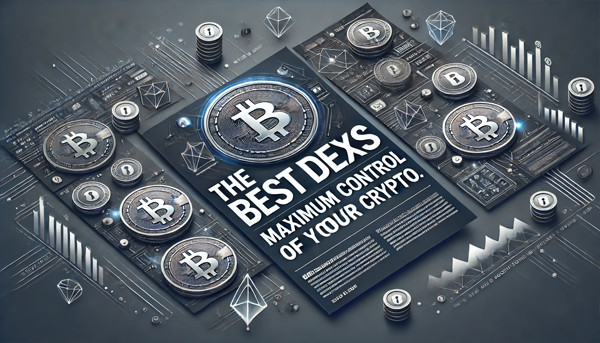
New MultiChain Dex Options
New multichain decentralized exchanges (DEXs) like BullX and DBOT DEX are revolutionizing the DeFi landscape by enabling users to trade across multiple blockchain networks seamlessly. Unlike traditional DEXs that are usually limited to a single blockchain, multichain DEXs offer a broader range of assets, increased liquidity, and access to diverse ecosystems—all from a single platform. Here’s a closer look at what BullX and DBOT DEX bring to the DeFi space and why these platforms are attracting attention.
BullX
BullX is a hybrid DEX and trading bot platform, designed to operate across multiple chains such as Ethereum, Solana, Base, Binance Smart Chain, Arbitrum, and Blast. Its multichain functionality offers a flexible and powerful trading experience for users who want to trade assets across various ecosystems without moving between multiple platforms.
- Cross-Chain Trading: BullX allows users to trade assets across different blockchains, opening up a vast range of trading pairs and expanding market opportunities. This cross-chain functionality simplifies asset management by letting users trade tokens on multiple networks seamlessly.
- Integrated Trading Bot: One of BullX’s standout features is its integrated trading bot, which automates complex trading strategies. This bot provides tools like limit orders, stop-loss, and take-profit options across all supported networks, giving users enhanced control over their trades and risk management.
- Decentralized, Non-Custodial Model: Like other DEXs, BullX operates on a decentralized model, meaning users maintain control of their funds through self-custody. This model offers increased security and privacy as users do not need to deposit funds into a centralized exchange.
- Single Interface for Multi-Chain Operations: BullX consolidates assets from various chains into a single interface, allowing users to view and manage their holdings from one place. This design simplifies the multichain trading experience, making it more accessible to both experienced and new users.
BullX appeals to users who are looking for convenience and flexibility. By combining multichain access with an integrated trading bot, BullX supports more sophisticated trading strategies, allowing users to maximize opportunities across networks.
DBOT DEX
DBOT DEX is an advanced multichain decentralized exchange that emphasizes a suite of powerful trading tools and optional integration with Telegram trade bots, primarily supporting Ethereum, Solana, and Binance Smart Chain. Designed with a focus on automation and user customization, DBOT DEX appeals to users seeking a robust DeFi trading experience.
- Simulator and Multi-Sender Tools: DBOT DEX includes a unique simulator tool that allows users to test trading strategies in real-time before executing them, making it an invaluable tool for new and experienced traders. Additionally, the multi-sender feature enables batch transactions, allowing users to send tokens to multiple addresses at once—ideal for projects and token distributions.
- Telegram Trade Bots: DBOT DEX integrates optional Telegram trade bots, which automate trades, provide real-time market notifications, and even allow users to execute commands via chat. This feature is particularly useful for traders who want to stay connected and act on market conditions quickly, even when away from their primary device.
- Webhooks and API Access: DBOT DEX offers advanced users the option to set up webhooks and API connections, providing them with real-time data and customized alerts on market movements. This feature is beneficial for developers and advanced traders who want to integrate DBOT’s data with other tools or platforms.
- GPU Machines for Faster Computation: To handle computationally intense tasks, DBOT DEX offers GPU-based computing resources, enhancing the speed of data processing. This feature is especially beneficial for traders using complex algorithms and helps maintain a fast, efficient trading experience.
DBOT DEX is ideal for users who value control, advanced features, and automated tools. The platform’s suite of tools empowers traders to optimize their strategies with data-driven insights and customized alerts, making it a powerful option for traders focused on automation and precision.
Why Multichain DEXs Are Attracting Attention
BullX and DBOT DEX represent the next generation of DEXs by merging multichain access with powerful trading tools. For users, this means the ability to trade a wider variety of assets, leverage advanced strategies, and manage funds across chains without needing to jump between platforms. This interoperability reduces friction and enhances trading flexibility, drawing attention from both casual and experienced traders.
Multichain DEXs like BullX and DBOT DEX provide the infrastructure needed to expand the DeFi ecosystem, enabling a truly interconnected decentralized financial experience. As more users seek cross-chain flexibility and powerful trading tools, platforms like these are well-positioned to drive the future of DeFi trading.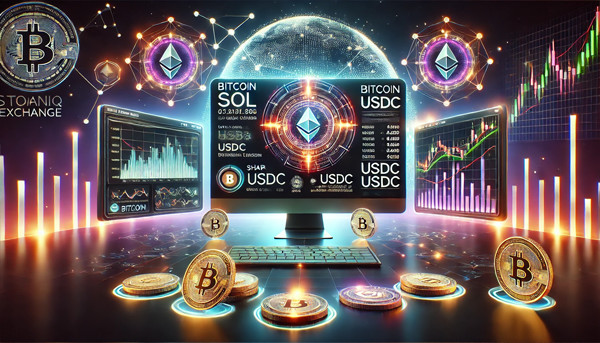
DeFi wallets and trading apps are transforming the way people interact with digital assets, standing at the forefront of a financial revolution that puts power back into the hands of individuals. By enabling direct control over assets, offering enhanced security, and facilitating borderless transactions, these tools embody the essence of decentralized finance. They are reshaping traditional finance by removing intermediaries, lowering fees, and making finance accessible to anyone with an internet connection. For those looking to trade, swap, or simply hold assets securely, DeFi wallets and trading apps offer tailored solutions that suit various needs, experience levels, and trading goals.
The opportunities these tools provide go far beyond basic transactions, with features like yield farming, staking, automated trading, and cross-chain interoperability that enable users to make the most of their assets. By embracing DeFi, users gain the ability to customize their financial strategies, explore new markets, and access a global financial ecosystem—free from geographic or regulatory constraints. Whether you’re a beginner intrigued by the possibilities of crypto or an experienced trader seeking advanced tools, there’s a DeFi solution ready to support your goals. So dive into the world of DeFi, leverage the power of these cutting-edge wallets and trading apps, and take part in the evolution toward a decentralized financial future that prioritizes freedom, innovation, and financial inclusivity.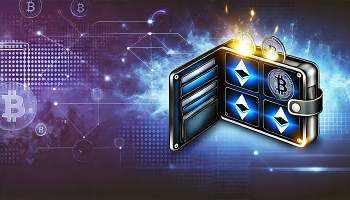
Here’s a list of the top two DeFi wallets for each of the specified blockchains, chosen based on their popularity, features, and user feedback.
Ethereum
- MetaMask – One of the most popular Ethereum wallets, known for its extensive dApp compatibility and ease of use.
- Rainbow Wallet – An intuitive Ethereum wallet with vibrant design and social features for NFT and DeFi users.
Solana
- Phantom Wallet – A widely used wallet on Solana with built-in staking, NFT support, and DeFi integrations.
- Solflare – A comprehensive wallet with Web, iOS, and Android versions, supporting DeFi, staking, and NFT functionalities.
Sui
- Suiet Wallet – A trusted wallet for Sui blockchain with strong support for dApps and DeFi.
- Ethos Wallet – Known for its simplicity, this wallet supports DeFi and NFT features on Sui.
Tron
- TronLink – The official wallet for Tron, supporting TRX staking, dApps, and DeFi features.
- Trust Wallet – A versatile multi-chain wallet that includes support for Tron along with staking and DeFi functionalities.
TON (The Open Network)
- TON Wallet – The native wallet for TON, offering a secure and user-friendly experience for managing TON assets.
- TONkeeper – Another popular wallet on TON, known for its DeFi and NFT capabilities and ease of use.
Binance Smart Chain (BSC)
- Trust Wallet – The most popular wallet for BSC, with multi-chain support and staking options.
- SafePal – A secure hardware and software wallet solution with support for BSC, DeFi, and NFT functionalities.
Base
- Coinbase Wallet – Coinbase’s official wallet, supporting Ethereum Layer 2 and dApp browsing on the Base network.
- Rainbow Wallet – Offers support for Ethereum and Layer 2 networks like Base, with an easy-to-navigate interface ideal for DeFi.
Each of these wallets provides unique features to cater to various DeFi needs, from asset management to staking and dApp interaction. Let me know if you’d like more details on any specific wallet!
Top Trading Bots
- TROJAN BOT : Solana — Top Bot — READ MORE
- MAESTRO BOT : Sol Eth Base Blast Bsc Arb Metis Ton READ MORE
- SHURIKEN : Sol Eth Base Avax Arb Bsc Ftm TRON SUI Runes READ MORE
- SIGMA : Eth Base Bsc Degen Blast Bsc Avax Ftm +
- BULLX: Hybrid DEX Telegram BOT ETH SOL BASE BSC ARB BLAST
- REKT BOT : SOLANA READ MORE
- SUISNIPERBOT : SUI
- NFD APE TRADING BOT : APE COIN CHAIN
- TON TRADING BOT : Ton
- SUNTOOLS TRON TRADING: TRON
TOP DEX
- JUPITER – SOLANA
- RAYDIUM – SOLANA
- BULLX — ETH SOL BASE BLAST ARB BSC
- MEVX – Solana
- POND0X: Solana
- KINE DEX : Multi Chain
- DBOT DEX — MULTICHAIN
- 1DEX: Multi Cross Chain Swap
- ATOMIQ EXCHANGE — $SOL to $BTC DeFi Swap
- AutoSnipe: Solana
TOP CEX (NO KYC)
Tags: automate trade, Crypto, cryptocurrencies, Defi, Dex, Trade bot
































